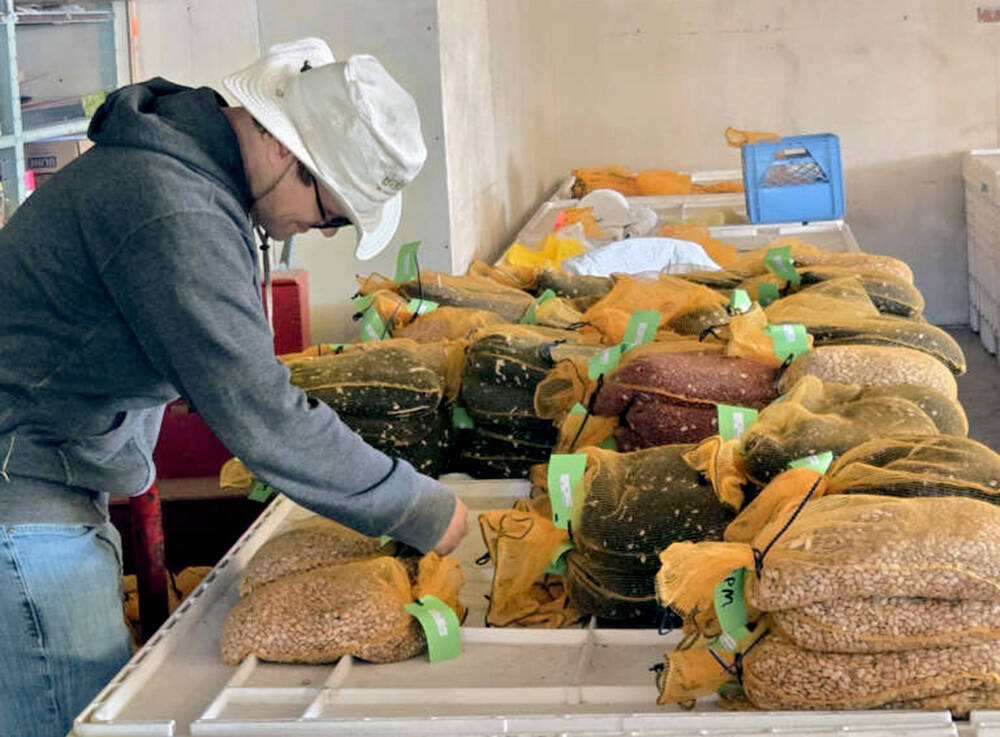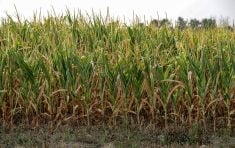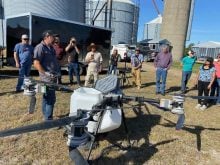Glacier FarmMedia – A U.S. study has found that weeds will likely deepen the negative impact of climate change on corn yields, says a scientist.
Such results likely extend to other crops, said Marty Williams, an ecologist with the U.S. Department of Agriculture.
“I think what this tells farmers is that going forward, more than ever, we really need to give some serious thought to how we manage weeds.”
Read Also

Bean research breeds community giving
University of Guelph dry bean researcher Dr. Mohsen Yoosefzadeh Najafabadi champions sustainability by donating surplus breeding program beans to support food security and community art initiatives.
The study was recently published in the scientific journal Global Change Biology. A research team that included Williams looked at 27 years of herbicide evaluation trials from 1992 to 2018 involving more than 200 unique weather environments for corn grown in Illinois.
Why it matters: As summers become hotter and drier, weeds will compete with crops for fewer resources and the usual ways of approaching weed management may not be effective.
The data was analyzed using machine learning to help reveal patterns and relationships, said Williams, who is part of the USDA’s Agricultural Research Service.
It found that when weed control was less than 94 per cent over the entire weed community and growing season, it exacerbated the effect of heat or drought on corn yields, particularly during flowering or silking, Williams said.
The corn belt of the American Midwest is on track to have hotter, drier summers due to climate change, so imperfect weed control could have “a huge impact on corn yields,” he said. “And this makes sense because weeds are competing for a limited resource, so the crop must deal with multiple stressors at once.”
Many weeds have developed resistance to herbicides, he added.
“I think there’s a general consensus among many farmers that, ‘oh, there’ll be a new herbicide to come out and take care of it,’ and that may not be the case.”
Besides expanding corn research to Canada and to other parts of the U.S., scientists are finishing up research involving weeds and soybeans, said Williams.
“The bottom line, whether it’s corn, soybean or any type of crop, (is that) adding innovation and diversity in how we manage weeds could be a common theme for about any crop that’s being grown.”
The corn study published in Global Change Biology was sparked by the recognition that computer models of future yields assume fields will be free of weeds, said Williams.
“And that strikes us as a tall order because weeds are present in every field … and based on a number of cases of herbicide resistance, weeds are actually becoming more difficult to control, not easier to control.”
Weeds also tend to be more resilient to extreme weather, he said.
“I think that there’s certainly a huge genetic diversity amongst some of our important weed species … They’re probably better suited to adapt to changing conditions than our crops.”
Farmers are faced with the deepening dilemma of how to best feed a growing world population. They must produce more food while also cutting agricultural emissions by an estimated two-thirds to help fight climate change, said Tim Searchinger, senior research scholar at the Centre for Policy Research on Energy and the Environment at Princeton University.
He spoke earlier this year at an online seminar hosted by the Canadian Agri-Food Policy Institute.
Searchinger said serious efforts must be made to put “real money into what I call collaborative projects … where farmers, scientists, the private sector are working together to explore how to do things.”
Williams said the fight against weeds must embrace a variety of innovative approaches, not just herbicides. They could include genetic modification that results in either direct genetic control of weeds or improves the ability of crops to compete against them, he said.
Other practices could include weed seed destructors on combines. Companies are also exploring the use of autonomous weeders, said Williams.
This article was originally published at The Western Producer.












